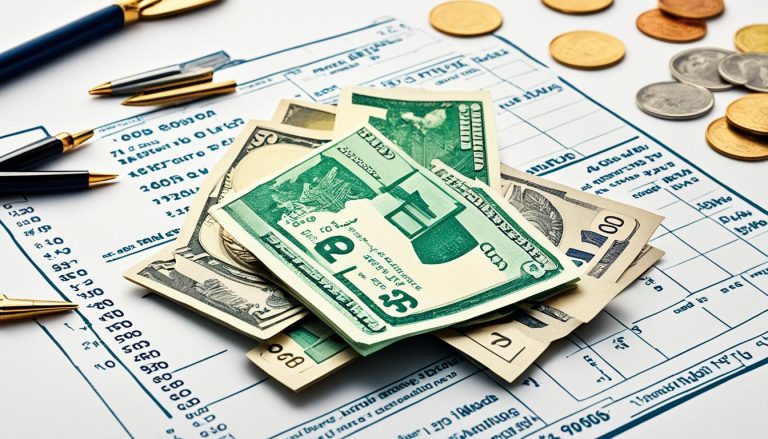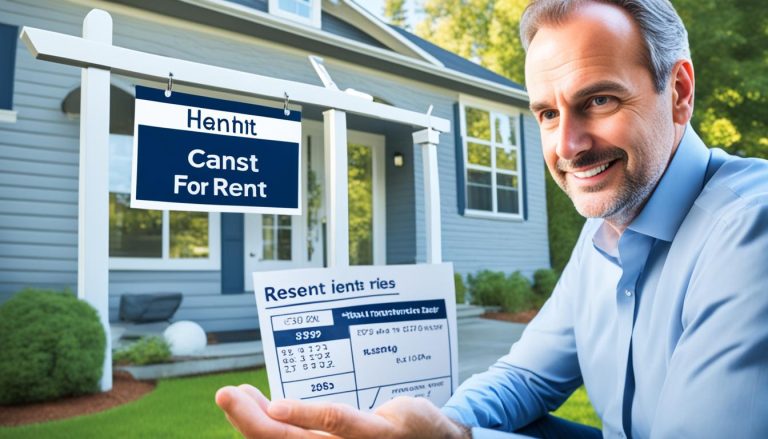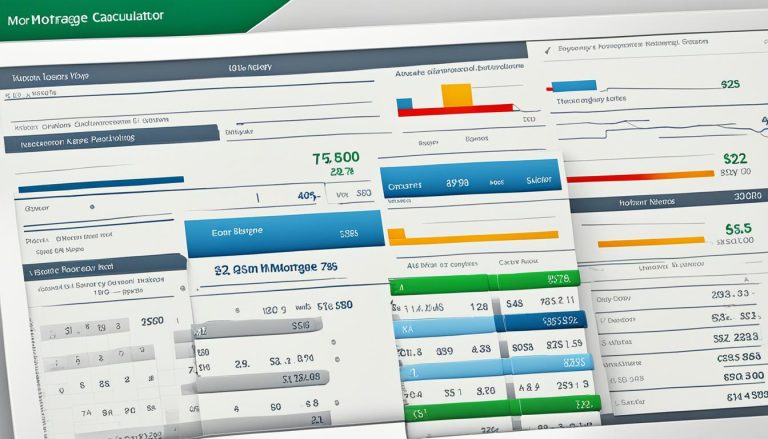Paying off a mortgage early might seem like a financially responsible decision for many UK homeowners. After all, being debt-free can feel liberating, and the idea of owning your home outright without the burden of monthly payments is appealing.
However, before making such a significant financial move, it’s crucial to understand the potential disadvantages. While there are clear advantages, the drawbacks, particularly in the context of UK financial systems, may surprise you.
This blog will delve into these disadvantages of paying off mortgage UK and explain what you need to know before deciding whether to pay off your mortgage early.
Understanding the Mortgage Repayment Process in the UK

Mortgages are long-term financial commitments that typically span between 20 to 30 years in the UK. Most homeowners repay their mortgages through monthly payments, which include both interest and principal amounts. Interest rates vary based on the type of mortgage and the financial agreement with the lender.
In the UK, there are options to overpay your mortgage, either through lump-sum payments or by increasing monthly repayments. However, early repayment can come with its own set of financial consequences.
Understanding how the mortgage repayment process works can help you assess whether paying off your mortgage ahead of time is beneficial for you.
What Are the Disadvantages of Paying Off Mortgage UK?

While paying off your mortgage early may seem like a sound financial decision, there are several significant disadvantages that may make you reconsider.
Below are some of the key drawbacks that UK homeowners should be aware of before deciding to make early mortgage repayments.
1. Impact on Liquidity and Cash Flow
One of the most immediate disadvantages of paying off your mortgage early is the reduction in liquidity. Liquidity refers to how easily you can access cash or liquid assets when needed.
When you pay off a significant portion of your mortgage, or the entire balance, you lock your money into an illiquid asset—your home. This means that if an emergency arises or an investment opportunity comes up, you won’t be able to access the funds quickly unless you sell or remortgage your home, both of which take time and may come with costs.
For many, having access to a rainy-day fund or being able to quickly seize financial opportunities outweighs the benefits of being mortgage-free.
With your cash tied up in property, your ability to cover unforeseen expenses or make new investments is severely restricted.
2. Loss of Mortgage Interest Tax Relief
While some countries offer tax incentives for mortgage interest, this isn’t the case in the UK. Homeowners in the UK do not receive tax relief on mortgage interest payments for residential properties.
However, some individuals may be using their savings or surplus income to pay down a mortgage while also having other debts, which may offer tax relief benefits or have higher interest rates.
By paying off your mortgage, you lose the chance to optimise your finances through such tax advantages. It may be more beneficial to keep a low-interest mortgage and use extra funds to pay off other, higher-interest debt, or invest in tax-efficient accounts such as an ISA or a pension.
3. Reduction in Financial Flexibility
A mortgage, especially with a flexible repayment structure, can provide homeowners with a degree of financial flexibility.Some mortgage agreements offer the option to take payment holidays, reduce payments temporarily, or make overpayments without penalties.
Once you pay off your mortgage, you lose access to these features, which could be helpful in times of financial uncertainty.If circumstances change—such as a job loss, unexpected medical expenses, or other financial hardships—having the flexibility to adjust your mortgage payments can be a significant advantage.
With no mortgage, your options to manage monthly expenses or spread out costs over time become more limited, forcing you to rely on savings or credit, which may not always be ideal.
4. Missed Investment Opportunities
One of the most overlooked disadvantages of paying off your mortgage early is the opportunity cost. The money you use to pay off your mortgage could potentially generate higher returns if invested elsewhere.
Historically, long-term investments in stocks, bonds, or other financial assets tend to yield higher returns than the interest you save from repaying a low-rate mortgage early.
For instance, if your mortgage interest rate is 2% to 3%, but you could potentially earn 6% to 8% through investments in the stock market, you may be better off investing rather than paying off the mortgage.
Additionally, contributing to pensions or ISAs offers the benefit of tax-free growth, which could provide long-term financial security while still maintaining your mortgage payments.
5. Early Repayment Charges (ERCs)
Many UK mortgages come with early repayment charges (ERCs) that apply if you repay your mortgage before the end of the agreed term, particularly during a fixed-rate period. These charges are typically calculated as a percentage of the outstanding loan balance and can amount to thousands of pounds.
The cost of paying these penalties can outweigh the potential savings on interest, making early repayment a less attractive option. Before deciding to pay off your mortgage early, it’s essential to carefully review your mortgage agreement and understand the terms related to early repayment.
Advantages of Paying Off Your Mortgage

While there are several disadvantages to paying off your mortgage early, there are also undeniable advantages. For many UK homeowners, becoming mortgage-free represents a significant financial milestone and can provide both peace of mind and long-term financial benefits. Below are some of the key advantages of paying off your mortgage early.
1. Financial Freedom and Peace of Mind
One of the most compelling advantages of paying off your mortgage early is the peace of mind that comes with being debt-free. Without a mortgage, you no longer need to worry about making monthly payments, which can significantly reduce financial stress.
This sense of security, especially for those nearing retirement, is invaluable. Knowing that your home is fully paid off means you don’t have to worry about losing it due to financial hardships or changing interest rates.
This financial freedom also allows you to allocate your income elsewhere—whether that’s for travel, hobbies, or helping family members. You’re no longer tied to making large, consistent payments toward your home, which can free up cash flow for other pursuits.
2. Savings on Interest Payments
Paying off your mortgage early means you save on interest payments over the life of the loan. Even with a relatively low interest rate, mortgage interest can accumulate to a significant amount, especially on longer-term loans.
By repaying your mortgage early, you eliminate the future interest payments that you would have otherwise made over the remaining term of the loan.
The savings can be substantial, particularly if you overpay consistently from an early stage. For example, if you have a 25-year mortgage and you manage to pay it off in 15 years, you could save thousands of pounds in interest.
3. Increased Cash Flow After Mortgage Payoff
Once your mortgage is paid off, the money that was previously allocated to monthly payments is freed up. This immediate boost in cash flow allows you to redirect your finances toward other areas, such as savings, investments, or lifestyle improvements.
With no mortgage payments, your disposable income increases, giving you the opportunity to bolster your retirement savings, invest in new ventures, or enjoy more discretionary spending.
This enhanced financial flexibility can be a game-changer for many individuals, particularly those who want to enjoy the fruits of their hard work without the constraint of regular mortgage obligations.
4. Improved Equity and Property Ownership
By paying off your mortgage, you fully own your home, and this comes with a range of financial and emotional benefits. With no debt tied to the property, the equity in your home is 100% yours.
This equity can act as a significant financial resource in the future, whether you decide to sell your property or tap into that value through financial products like equity release.
Moreover, full ownership of your home can provide a valuable inheritance for your family, offering them security and a tangible asset that doesn’t come with any liabilities. For many people, owning their home outright brings a sense of achievement and legacy-building.
5. Protection Against Interest Rate Rises
By paying off your mortgage early, you protect yourself against future fluctuations in interest rates. Many mortgage holders are on fixed-rate deals that eventually revert to variable rates, which can fluctuate based on economic conditions. If interest rates rise, your monthly payments could increase significantly, putting pressure on your finances.
Eliminating your mortgage ensures that you won’t be vulnerable to such fluctuations. You’ll be immune to any potential interest rate hikes that could arise in the future, which is particularly important for those on tight budgets or nearing retirement.
6. Simplified Financial Planning
Without the need to factor in mortgage payments, your financial planning becomes much more straightforward. You can focus on saving for retirement, investing, or spending your income on things that bring you joy, without worrying about meeting mortgage obligations each month.
This simplified financial landscape can also make it easier to plan for long-term goals, like travel, home renovations, or other large purchases. It reduces the overall complexity of managing your finances, making it easier to see exactly how much money you have at your disposal.
The Tax Implications of Paying Off Your Mortgage in the UK

In the UK, paying off your mortgage early does not come with direct tax benefits. In contrast to countries where mortgage interest is tax-deductible, the UK’s tax structure does not provide such relief.
As a result, homeowners do not receive any tax breaks for repaying their mortgage early. Moreover, any funds used for early repayment are often better utilised in tax-efficient investment vehicles such as ISAs or pensions, which offer better long-term growth potential.
Opportunity Cost of Paying Off Your Mortgage

A major consideration when deciding whether to pay off your mortgage early is the opportunity cost. By diverting funds towards mortgage repayment, you forgo the opportunity to invest that money elsewhere.
For example, long-term investments in stocks, bonds, or other assets may provide higher returns than the savings made from mortgage interest payments.
For homeowners with fixed-rate mortgages, where the interest rate is relatively low, investing surplus funds in higher-yield opportunities might be a more prudent financial move.
| Scenario | Average Return (%) | Risk Level |
| Mortgage Overpayment | 2% – 3% (interest saved) | Low |
| Stock Market Investment | 6% – 8% (historical return) | Moderate to High |
| Property Investment | 4% – 6% | Moderate |
As shown in the table above, other financial opportunities might offer better returns in the long run, particularly if your mortgage has a low interest rate.
10 Reasons Why You Should Never Pay Off Your Mortgage Early in the UK?

- Missed Investment Opportunities – Your funds might generate better returns elsewhere.
- Loss of Liquidity – Locking funds into your property reduces emergency access to cash.
- No Tax Benefits – There are no tax relief advantages for homeowners in the UK.
- Low Mortgage Interest Rates – Low-interest mortgages might mean repaying early is less beneficial.
- Inflation Considerations – Inflation reduces the real cost of debt over time, so paying it off early may not make sense.
- Early Repayment Fees – Many mortgages include penalties for early repayment.
- Better Use of Extra Cash – You could use the cash for home improvements or other expenses.
- Retaining Financial Flexibility – Keeping a mortgage gives you options in times of financial difficulty.
- Future Borrowing Needs – You may still need to borrow money later, which could be harder without a mortgage.
- Opportunity for Better Investments – Putting money into pension schemes or ISAs might be a better long-term strategy.
Balancing Debt Management and Long-Term Financial Planning
Managing debt is a critical component of long-term financial planning. While paying off debt is often seen as the responsible choice, there are times when it may not align with broader financial goals. For instance, having a flexible mortgage can allow you to redirect your money into higher-yield investments.
Carefully balancing debt repayment with other financial priorities—such as building an emergency fund, investing in retirement, or considering other financial products—is crucial for making sound financial decisions.
Paying Off Mortgage vs Investing

Choosing between paying off your mortgage early or investing your extra money is a significant financial decision. Both options have their pros and cons, and the right choice depends on your personal financial situation, risk tolerance, and long-term goals.
Here’s a breakdown of the key factors to consider:
1. Interest Rates
- Mortgage Interest Rates: One of the primary reasons to pay off your mortgage early is to save money on interest. If your mortgage interest rate is high, paying it off early can reduce the total amount of interest you pay over time.
- Investment Returns: On the other hand, if you can invest your money and earn a higher return than your mortgage interest rate, it may make more sense to invest. For example, if your mortgage has a 3% interest rate, but you expect to earn 7% on your investments, you could potentially come out ahead by investing.
2. Tax Implications
- Mortgage Interest Deduction: In some countries, mortgage interest payments are tax-deductible. If you benefit from this deduction, the effective cost of your mortgage may be lower, which might tilt the decision toward investing.
- Capital Gains on Investments: Investments, such as stocks or real estate, may come with tax advantages like capital gains rates. However, these gains can also be taxed, so consider how taxes will affect your investment returns.
3. Liquidity
- Paying Off Mortgage: Paying off your mortgage ties up your money in your home, making it less liquid. While it reduces your debt, it might leave you with fewer resources for emergencies or other investments.
- Investing: Keeping your money invested allows for more liquidity. You can access your funds if you need them for an emergency or to take advantage of other opportunities.
4. Risk Tolerance
- Mortgage as a “Safe Bet”: Paying off your mortgage is a guaranteed way to eliminate debt, which can offer peace of mind, especially if you’re close to retirement or prefer to avoid debt altogether.
- Investing Involves Risk: While investing can potentially yield higher returns, it also comes with risk. Markets can fluctuate, and there’s no guarantee of earning more than your mortgage interest rate. If you’re uncomfortable with risk, paying off your mortgage may provide more security.
5. Financial Goals
- Freedom from Debt: If your goal is to become debt-free, paying off your mortgage can offer psychological and financial benefits, freeing up future cash flow.
- Wealth Building: If your goal is to build wealth over the long term, investing could help grow your money faster than paying off a low-interest mortgage.
6. Opportunity Cost
- Missed Investment Gains: By choosing to pay off your mortgage, you might miss out on potentially higher returns from investments. For example, if the stock market performs well over time, your money could have grown significantly if invested instead of used to pay down the mortgage.
7. Inflation Impact
- Mortgage Rates vs. Inflation: Mortgage rates are often fixed, while inflation reduces the real value of debt over time. If inflation is higher than your mortgage rate, paying off the mortgage early may not be as beneficial as investing the money and allowing inflation to erode the real value of your debt.
- Investment Hedge Against Inflation: Certain investments, such as stocks or real estate, tend to grow in value over time, outpacing inflation. Investing could help protect your purchasing power.
Conclusion
In conclusion, while paying off your mortgage early can bring peace of mind, it’s essential to weigh the potential disadvantages, particularly in the UK context. Loss of liquidity, missed investment opportunities, and the lack of tax relief are significant factors to consider.
For many homeowners, a balanced approach that includes both debt management and investment could lead to a stronger financial position in the long term. Before making any decisions, consult with a financial advisor to ensure you’re making the best choice for your unique financial situation.
FAQ
What happens if I pay off my mortgage early in the UK?
Paying off your mortgage early means you’ll stop paying interest and own your home outright. However, you may face early repayment charges from your lender.
Will paying off my mortgage affect my credit score?
Paying off your mortgage won’t negatively affect your credit score, but it could slightly reduce it since you’ll have one less active credit account.
How does overpaying my mortgage affect my financial situation?
Overpaying can reduce the total interest you pay, but it may limit your liquidity, reducing your ability to access cash when needed.
Are there penalties for early mortgage repayment?
Yes, many UK lenders impose early repayment charges if you pay off your mortgage before the agreed term.
Is it better to invest or pay off a mortgage in the UK?
It depends on your financial goals. For some, investing surplus cash may offer better returns than the savings from paying off a low-interest mortgage.
Does paying off a mortgage early reduce taxes in the UK?
No, there are no tax relief benefits for homeowners paying off their mortgage early in the UK.
How can I manage debt without paying off my mortgage early?
You can focus on building an emergency fund or investing while keeping your mortgage payments flexible to retain cash flow.






